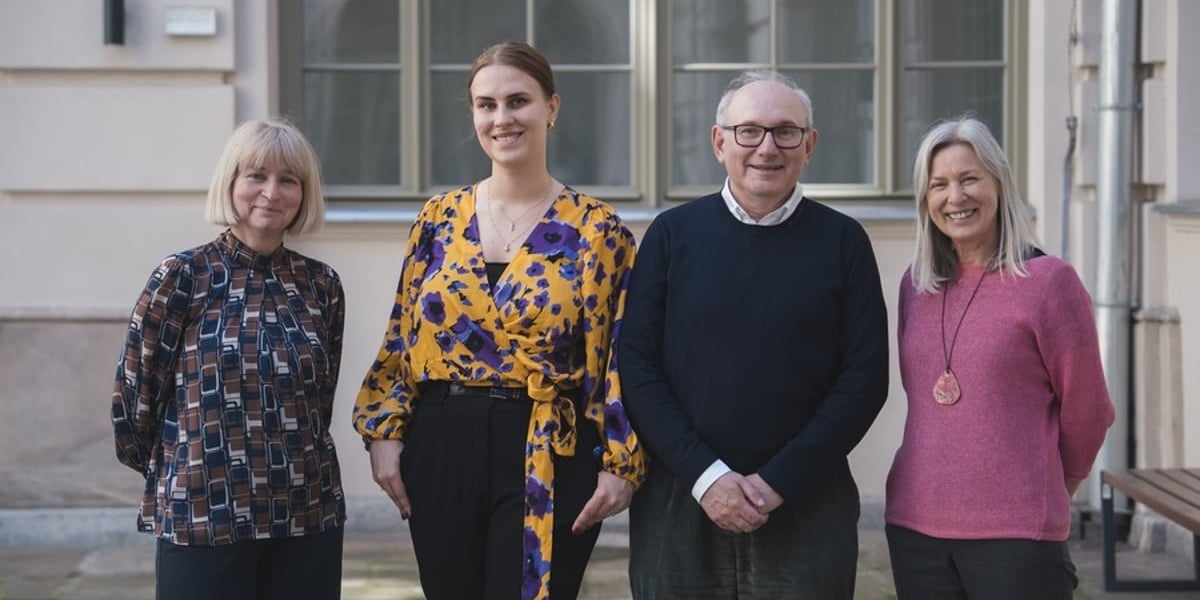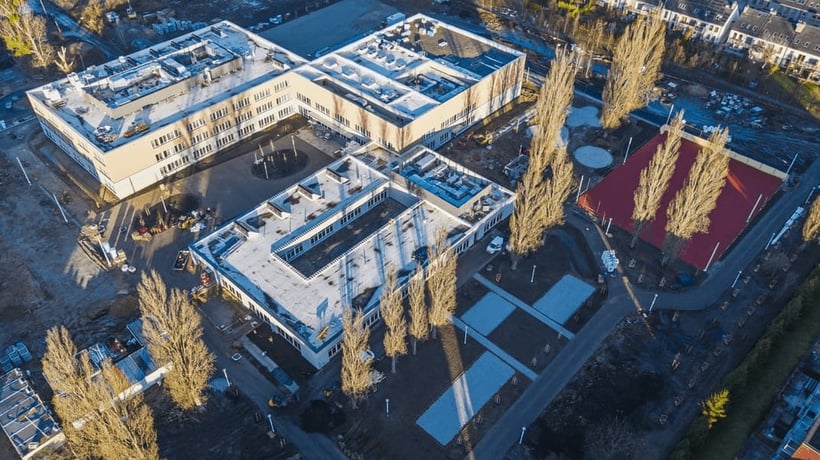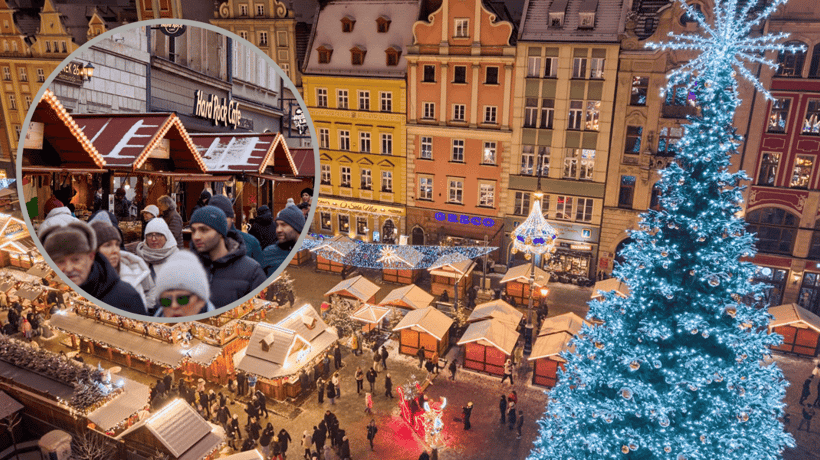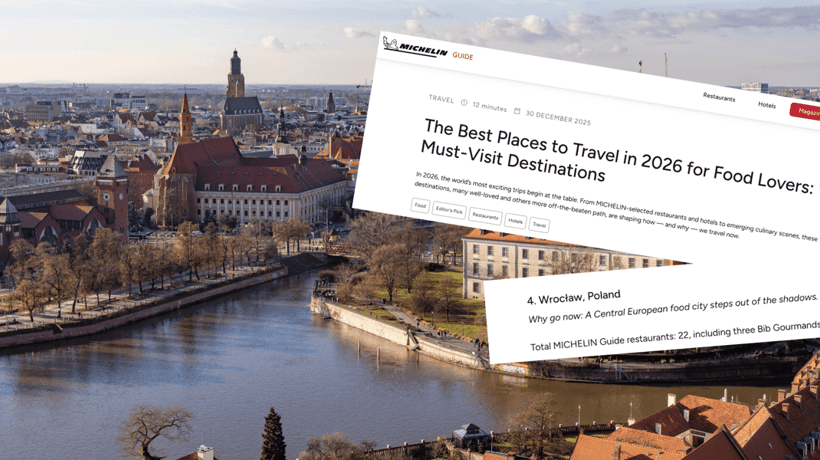Natalia Pietruszka came to our city from Upper Silesia and earned a degree in law at the University of Wroclaw. However, she did not stop there. ‘I was looking for a field of study that would be more interesting for me in terms of gaining knowledge about the world. I liked international relations,’ she recalls.
She signed up for another master's degree. At the Institute of International Studies of the University of Wroclaw, she met Professor Magdalena Ratajczak, from whom she learned about the possibility of doing a double degree by studying in Wroclaw for one year and in Padua for another.
Wroclaw graduate of the University of Padua
Copernicus nor Kochanowski were no longer there, but the opportunity still seemed exceptionally attractive, not least for strictly scientific reasons.
‘Italy – a country I am fascinated with – has always been present throughout my life. I found out that I would like to live there a little longer. I had already been to Sardinia on Erasmus,’ says Natalia. ‘Thinking about Padua, I wanted to see what the approach of the instructors was there and how the academic programme was delivered. Double degree studies seemed exciting to me,’ she adds.
Having finished her first year at the University of Wroclaw with a sufficiently high grade point average, she left for the University of Padua for the academic year 2021/2022. She entered a multicultural environment. The international relations degree programme in Padua attracts students from all parts of Europe. There are also many people from Latin and South America.
Being at the same university with people from different countries who are eager to express their opinions, share their thoughts and participate in discussions was an enlightening experience for her. ‘I saw an open approach to many things. Foreigners said how they viewed the world and how they perceived it from their perspective. Everyone benefits from this, because the view of the issues in question is then broadened and we start noticing more,’ explains Natalia. ‘In our country we often think Eurocentrically, there we think more globally,’ she added.
The greater emphasis on lectures and the orientation towards professors is another noticeable difference in the organisation of studies in comparison to Poland. ‘There are more lectures and fewer seminars or exercises, but it is worth noting that lectures are often followed by questions and polemics,' Natalia emphasises.
Professor De Stefani in Wroclaw. Double Degree Programme
One of her lecturers at Padua was Professor Paolo De Stefani, who taught international human rights to her group.
Professor De Stefani has worked at the University of Padua for almost 30 years. One day he sent out e-mails to Poland, Germany and other countries with a proposal to organise studies enabling students to obtain a double degree.
Professor De Stefani: ‘We wanted to give them a chance to have a more in-depth look at Europe. To make the teaching programme more varied. To provide an opportunity to try different learning styles and approaches. And the differences are big. In our country, for example, classes are organised more around professors. Students are autonomous, they are expected to act independently. In your country, on the other hand, they are given more attention and are more involved in the co-operation with teachers.
Wroclaw was one of the few to respond to his call. The personnel of the two universities managed to reach an agreement on general issues and details quite quickly, even though they had to organise everything almost from scratch.
At the beginning, they had to improvise a little... ‘I remember running around the corridors with a piece of paper, promising my students that they would also receive their diploma from uswhen they returned from Wroclaw,’ recalls Professor Stefani with a smile.
The most difficult task was not to convince the students and gain their confidence about the new studies but to adapt the curricula so that they complemented each other in the desired way.
Ten years have passed since then. Throughout this period, several students moved from Wroclaw to Padua, and vice versa, every year.
What are the benefits of this?
Professor De Stefani: ‘It is very important for young Europeans to learn about diverse points of view. After all, the same things look different when you look at them from an Italian perspective and different when you look at them from a Polish perspective. Students learn to be a national minority, which is also very important. They learn the language and improve their communication skills. At the end of the day, they have two diplomas from two renowned universities, which are honoured outside Italy and Poland and prove that the holder was not confined to his/her world during their studies.
Before the start of the co-operation with the University of Wroclaw, the professor from Italy had never been to Wroclaw. He had visited Warsaw and heard about Krakow from a colleague, but our city was a complete discovery for him. When returning to it years later, he is surprised at how things have changed.
‘You only need to drive from the airport to the centre to notice this. Previously, there was almost nothing along this route,' he assesses. ‘I like Wroclaw very much, and I can say that I am a little fascinated by it,’ he adds.
In Wroclaw, there are three people doing the double diploma now; one of them is Salvatore, of Sicilian origin. ‘He said he had chosen Padua because he had heard about the possibility of taking part in an exchange with Wroclaw, where he had always wanted to come,’ says Professor Magdalena Ratajczak, co-ordinator of the Double Degree programme at the Institute of International Studies and Security of the University of Wroclaw. ‘I hear words of satisfaction from all our visitors, as well as from our students who have been to Padua,’ she adds.
Professor Ratajczak says that enrolment is not difficult and that the grade point average is the most important factor in recruitment. An incentive for those who fear they will not be able to cope financially is money from the Erasmus programme. ‘Students receive a monthly stipend during their stay in Italy,’ the coordinator adds.
Historic Padua. The walls are still the same
Padua is an intimate, peaceful, charming and cloistered Italian city. In its old part there are Renaissance palaces and other monuments. ‘Very nice and interesting,’ assesses Natalia Pietruszka. ‘The centre is beautiful. And also the oldest building of the university, the Palazzo del Bo, is very atmospheric,’ she recalls.
What about Copernicus, what about Kochanowski? Is the spirit of the great predecessors still present there?
‘I think so, even though everything is renovated,’ Natalia states. ‘However, the walls are the same, with the coats of arms of the families that have passed through this university still hanging on the walls. In Padua, you can immerse yourself in history and imagine what it was like centuries ago.’
Since she defended her diploma before the esteemed Padua Commission (featuring a representative of the University of Wroclaw), she has been there twice: at a workshop for PhD students and at a scientific conference.
In Wroclaw, she currently works for a company specialising in intellectual property law and at a university. She is doing a PhD in political science and administration. She plans to finish next year, but has no intention of saying goodbye to the university. He wants to teach students by running one or two courses.
Double Degree Programme at the University of Wroclaw
At the University of Wroclaw, Double Degree programmes are run at the Faculty of Chemistry under an agreement with the University of Sassaria in Italy and at the Faculty of Social Sciences – the programme guarantees diplomas in international relations from universities in Padua or Bochum in Germany and in political science from the Georgian Institute of Public Affairs in Tbilisi, Georgia.





